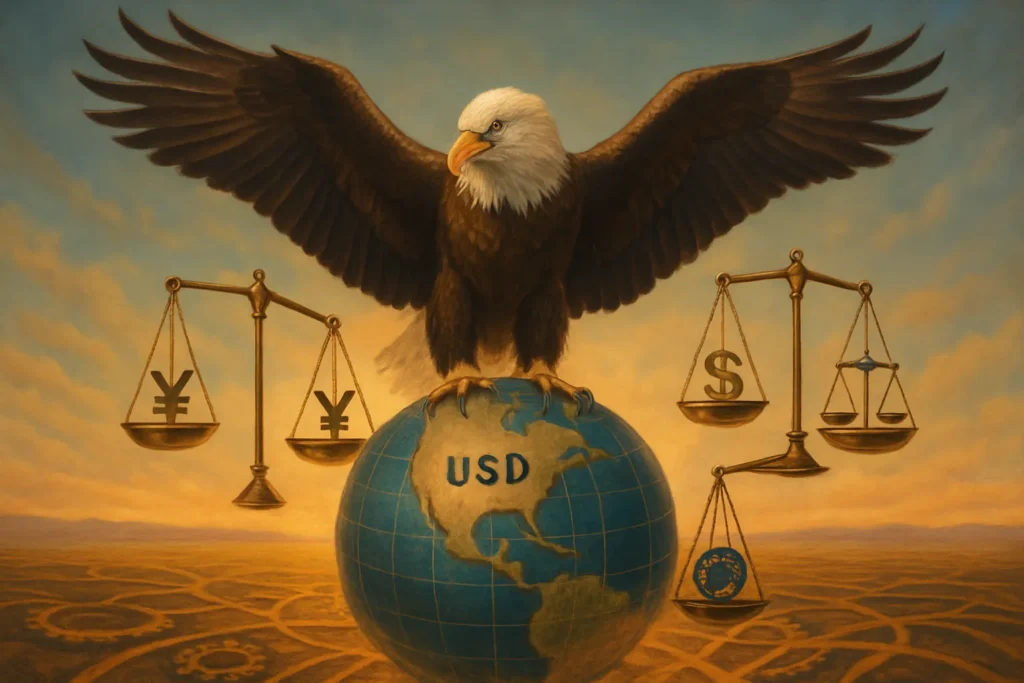New Tariff Measures Announced by President Trump
In recent developments, U.S. President Donald Trump has issued official letters setting forth new tariff rates for seven additional countries, including the Philippines, Brunei, Moldova, Algeria, Iraq, Libya, and Sri Lanka. These tariffs, scheduled to take effect from August 1, 2025, vary between 20% and 40%. The announcements are part of a broader strategy aimed at reshaping the United States’ trade relationships and addressing what Trump refers to as “unfair” trade deficits.
Notably, Brazil has faced the steepest measures, receiving a 50% tariff on imported goods, a move President Trump justified by citing Brazil’s handling of legal proceedings against former President Jair Bolsonaro. Analysts have already observed market shifts, such as a significant surge in coffee prices, as Brazil remains the world’s leading coffee producer.
The United States’ administration uses these tariffs strategically as negotiation tools, prompting trading partners to engage in discussions designed to reduce America’s perceived trade imbalances. Despite the sweeping nature of these tariffs, some nations have notably been spared, at least for now. Among them is the European Union, with whom negotiations have reportedly progressed significantly. EU trade chief Maroš Šefčovič indicated that a trade deal could be imminent, potentially within a matter of days.
The tariffs serve as both economic leverage and political signaling, aimed at redefining global trade terms favourable to U.S. interests.
“While the impact of these tariffs may initially be limited economically, they symbolize a strategic shift in U.S. trade policy,” explains trade analyst Mark Thompson from the Peterson Institute for International Economics.
The Philippines Responds to Tariff Concerns
Among countries most prominently highlighted in the recent tariff announcements is the Philippines, which faces a notable 20% tariff on its exports to the U.S., up from an earlier 17% rate. Despite this increase, officials in Manila appear relatively unperturbed, emphasizing that the new rate remains competitive within the region and that negotiations with the U.S. are proceeding positively.
Special Assistant to the Philippine President for Investment and Economic Affairs, Frederick Go, pointed out that exemptions and ongoing negotiations would mitigate any significant negative impacts. Analysts from Barclays concurred, predicting negligible effects on the Philippine economy due to existing sectoral exemptions and the country’s diversified economic structure.
However, industry observers suggest some indirect consequences, particularly for Taiwanese investors who have been considering relocating manufacturing operations to the Philippines. The tariff hike reduces the country’s comparative advantage previously held over regional peers like Vietnam and Cambodia, potentially deterring new investments.
The adjusted tariff rate could be an important consideration in investment decision-making for Taiwanese companies.
Lin Teng-feng, president of Taiwan Association Inc, cautions, “This move by the U.S. slightly tarnishes the Philippines’ appeal for companies looking to diversify away from China, although it remains a viable option for many.”
Broader Trade Policy Context and Global Implications
President Trump’s recent tariff policies mark a continuation of his broader strategy aimed at securing bilateral trade agreements that are advantageous to the United States. Using tariffs both as punitive measures and as motivators for cooperation indicates a broader use of economic measures to achieve diplomatic and geopolitical objectives.
The tariffs underline America’s toughening stance on trading partners, reflecting the administration’s ongoing concerns over trade deficits and perceived inequities. Trump’s tariff strategy also includes warnings to larger economic partners, including Japan, South Korea, and Bangladesh, which have received clear indications that tariff hikes loom if favorable agreements are not reached.
The move on Brazil, particularly citing political motivations, has sparked controversy, raising questions about using economic policy as a means of influencing another country’s judicial matters. Brazil responded strongly, with President Luiz Inácio Lula da Silva pointing to newly enacted domestic legislation, Brazil’s Reciprocity Law, that allows for retaliatory economic measures to counteract adverse foreign tariffs.
The Reciprocity Law, approved by Brazil’s Congress, enables strong economic countermeasures against countries perceived to harm Brazil’s competitiveness.
“By implementing these tariffs, the U.S. risks severe economic retaliation from Brazil, which could significantly disrupt bilateral trade relations,” said Anne-Marie Smith, a Latin American trade expert at the Center for Strategic Studies.
As global markets adjust to these measures, concerns emerge about the broader implications for international trade. Economists fear such aggressive tariffs could kindle inflationary pressures and hinder global economic growth. Furthermore, the politicization of economic measures could complicate relationships beyond mere commerce, potentially affecting international cooperation on broader issues.
President Trump’s administration shows a willingness to escalate trade tensions in pursuit of favourable outcomes for U.S. economic interests, a stance observed closely by global economic leaders. The outcomes of negotiations with the European Union and responses from other affected countries could set critical precedents for international trade frameworks moving forward.


